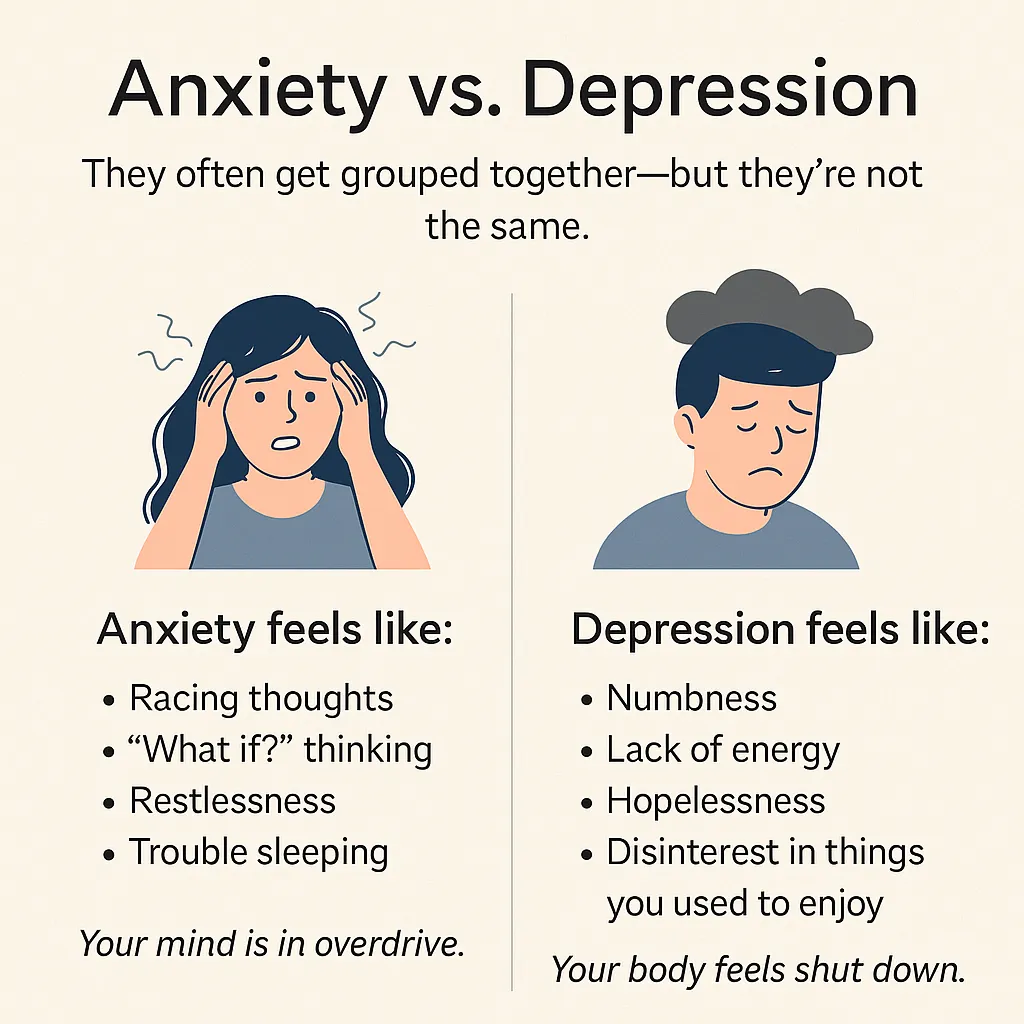
Anxiety vs. Depression: Two Sides of a Heavy Coin
In the mental health world, anxiety and depression are often spoken about in the same breath. And while they can occur together, they are not the same thing. Think of them as two different tunes played on the same piano—each with its own tempo, tone, and impact.
What Anxiety Feels Like
Anxiety is a state of over-alertness. It’s your brain yelling, “Something bad is going to happen!”—even when there’s no real threat. People with anxiety may feel:
• Restless or on edge
• Excessively worried, often about everyday situations
• Tense muscles or headaches
• Trouble sleeping or concentrating
• A racing heart or difficulty breathing
Anxiety is future-focused. It’s the what ifs and maybes that spiral into dread. Your mind becomes a storm of possibilities you can’t seem to turn off.
What Depression Feels Like
Depression, on the other hand, is heavy. It whispers, “Nothing matters.” It flattens your energy, motivation, and often your sense of self-worth. Signs of depression include:
• Persistent sadness or emptiness
• Loss of interest in activities once enjoyed
• Fatigue, even after a full night’s sleep
• Feelings of hopelessness, worthlessness, or guilt
• Changes in appetite or sleep patterns
Depression is more past- and present-focused. It can feel like being stuck in a fog, where joy is out of reach and even small tasks feel overwhelming.
When They Show Up Together
Anxiety and depression often co-occur. This means you can feel both revved up and completely shut down. For example, someone might feel intense anxiety about failing at work while also feeling too depressed to get out of bed.
This combination is emotionally exhausting. The mind wants to move fast (anxiety) while the body wants to stop completely (depression). It can feel like pressing the gas and brake pedals at the same time.
So… Which One Do I Have?
It’s not always about choosing one label. Mental health is complex, and symptoms can overlap. If you relate to both, you’re not alone. What matters more than the label is understanding how your mind and body are responding—and finding the support you need.
The Good News
Both anxiety and depression are treatable. Therapy, medication, lifestyle changes, and social support can make a real difference. You don’t have to figure it out alone. Whether you’re feeling wired and worried or low and lifeless, help is out there—and healing is possible.
